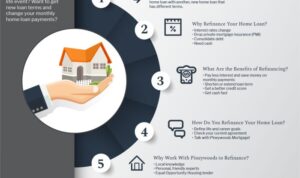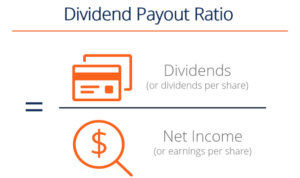Diving into the world of mortgage pre-approval process, we unravel the secrets behind securing your dream home with ease. From understanding the basics to navigating the complexities, this guide is your go-to resource for a smooth home buying journey.
Get ready to embark on a path that leads to the house of your dreams, armed with knowledge and insight to make informed decisions every step of the way.
Overview of Mortgage Pre-Approval
When it comes to buying a crib, getting that mortgage pre-approval is key, ya feel me? It’s like getting the green light from the lender that you’re good to go on a loan for your dream home.
Difference between Pre-Qualification and Pre-Approval
Alright, listen up – pre-qualification is like the warm-up before the workout, just a quick check to see if you might qualify for a loan. But pre-approval, that’s the real deal, fam. It’s a thorough process where the lender digs deep into your financials to give you a solid stamp of approval.
Benefits of Getting Pre-Approved
Let me break it down for you – when you’re pre-approved for a mortgage, you’re basically a VIP in the home buying game. Sellers know you’re serious and can close the deal faster. Plus, you’ll have a better idea of your budget and can shop with confidence. So, don’t sleep on getting pre-approved, it’s a game-changer for real.
Required Documents
To get your mortgage pre-approval, you’ll need to gather some important documents. Each document plays a key role in the pre-approval process, so it’s crucial to have everything in order. Here’s a breakdown of the required documents and why they are significant:
Income Verification
- Pay stubs: Show your income and employment status.
- W-2 forms: Provide a summary of your earnings and taxes paid.
- Tax returns: Offer a comprehensive view of your financial situation.
Asset Verification
- Bank statements: Demonstrate your savings and checking account balances.
- Investment account statements: Display your stocks, bonds, and other investments.
- Retirement account statements: Highlight your IRA, 401(k), or other retirement savings.
Credit History
- Credit report: Shows your credit score and history of payments.
- Explanation for any derogatory marks: Provide context for any negative credit items.
Other Documents
- Photo ID: Confirms your identity.
- Proof of residency: Validates your current address.
- Gift letters: If you received a gift for your down payment, you’ll need a letter from the donor.
Gathering and organizing these documents efficiently can streamline the pre-approval process. Be sure to make copies of all your paperwork, keep everything organized in a binder or folder, and have digital copies saved on your computer or a secure online storage platform. Being prepared with all the necessary documents will help you move smoothly through the mortgage pre-approval process.
Income and Employment Verification
When applying for a mortgage pre-approval, verifying income and employment is a crucial step in the process. Lenders need to ensure that borrowers have a stable source of income to repay the loan. Different methods are used to confirm a borrower’s income stability, depending on their employment status and financial situation.
Verification Process
- Lenders typically request pay stubs, W-2 forms, and tax returns to verify a borrower’s income. These documents provide a clear picture of the borrower’s earnings and help lenders assess their ability to make monthly mortgage payments.
- Employment verification involves contacting the borrower’s employer to confirm their job status, position, and income. Lenders may also request employment verification letters to validate the borrower’s employment details.
Methods for Self-Employed Individuals
- Self-employed individuals face additional challenges when providing proof of income during the pre-approval process. They may need to submit profit and loss statements, business bank statements, and tax returns to demonstrate their earnings.
- Lenders may also consider alternative documentation, such as bank statements showing regular deposits, to verify the income of self-employed borrowers.
Credit Check and Credit Score
When it comes to the mortgage pre-approval process, credit checks and credit scores play a crucial role in determining your eligibility for a loan. Lenders use this information to assess your creditworthiness and ability to repay the loan.
Role of Credit Checks and Credit Scores
- Credit checks help lenders evaluate your credit history, including your payment history, outstanding debts, and credit utilization.
- Your credit score, a numerical representation of your creditworthiness, gives lenders an idea of how likely you are to repay the loan on time.
- A higher credit score typically indicates lower risk for lenders, which can result in better loan terms and interest rates.
Minimum Credit Score for Pre-Approval
- While credit score requirements can vary among lenders, a credit score of 620 or higher is generally considered the minimum for mortgage pre-approval.
- However, a higher credit score, such as 700 or above, may increase your chances of getting approved and secure better loan terms.
Improving Credit Scores for Pre-Approval
- Pay your bills on time and in full to demonstrate responsible credit behavior.
- Reduce your credit card balances to lower your credit utilization ratio, which can boost your credit score.
- Avoid opening new credit accounts or taking on new debt before applying for a mortgage pre-approval.
Debt-to-Income Ratio Assessment

When applying for a mortgage pre-approval, lenders carefully assess your debt-to-income ratio to determine your financial capability to handle a mortgage. This ratio compares your monthly debt payments to your gross monthly income. Lenders use this information to evaluate if you can manage additional debt from a mortgage payment.
Importance of Debt-to-Income Ratio
Having a low debt-to-income ratio is crucial for mortgage eligibility as it indicates that you have enough income to cover your debts and a potential mortgage payment. Lenders prefer applicants with a lower ratio as it shows financial stability and a higher likelihood of making timely mortgage payments.
Strategies to Improve Debt-to-Income Ratio
- Pay off existing debts: Prioritize paying off high-interest debts like credit card balances to reduce your overall debt load.
- Increase income: Consider taking on a part-time job or freelance work to boost your monthly income and improve your debt-to-income ratio.
- Avoid taking on new debt: Refrain from applying for new credit cards or loans while going through the mortgage pre-approval process to prevent increasing your debt levels.
- Debt consolidation: Explore options to consolidate high-interest debts into a lower interest loan to streamline payments and reduce overall debt burden.
Property Appraisal and Evaluation
Property appraisal plays a crucial role in the mortgage pre-approval process as it helps determine the value of the property that will serve as collateral for the loan. Lenders need to assess the property’s worth accurately to mitigate the risk associated with the mortgage.
Role of Property Appraisal
During property appraisal, a professional appraiser evaluates the property to determine its current market value. This assessment involves considering various factors such as the property’s size, condition, location, and comparable sales in the area.
Determining Property Value
- Lenders use the property appraisal to ensure that the loan amount does not exceed the property’s actual value. This helps protect both the borrower and the lender from potential financial risks.
- The appraiser compares the property to similar homes that have recently sold in the area to establish a fair market value. Factors like upgrades, renovations, and the overall condition of the property are taken into account.
- Ultimately, the lender relies on the appraiser’s expertise and the appraisal report to determine the maximum amount they are willing to lend for the property.
Significance of Successful Appraisal
A successful property appraisal is crucial for finalizing the pre-approval as it ensures that the property’s value aligns with the loan amount being requested. If the appraisal comes in lower than expected, it could affect the loan terms or even lead to the loan application being denied.






